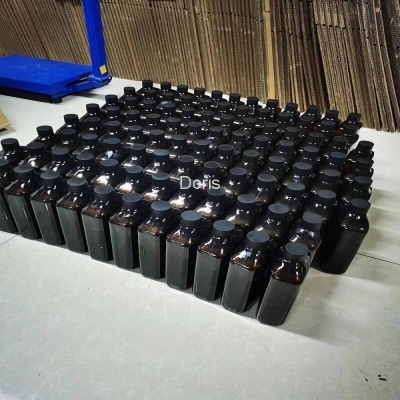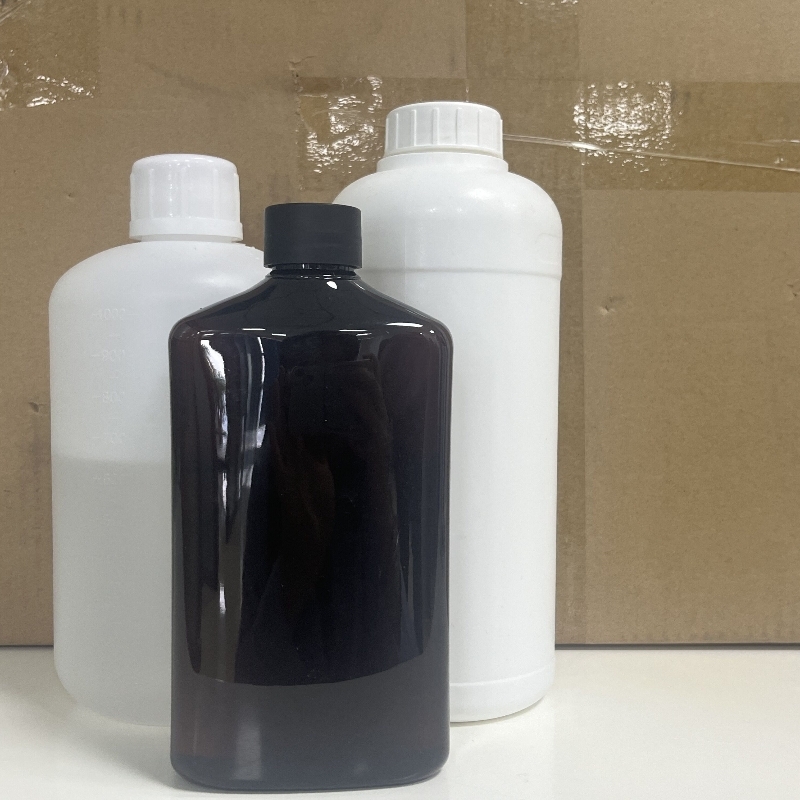-
Categories
-
Pharmaceutical Intermediates
-
Active Pharmaceutical Ingredients
-
Food Additives
- Industrial Coatings
- Agrochemicals
- Dyes and Pigments
- Surfactant
- Flavors and Fragrances
- Chemical Reagents
- Catalyst and Auxiliary
- Natural Products
- Inorganic Chemistry
-
Organic Chemistry
-
Biochemical Engineering
- Analytical Chemistry
- Cosmetic Ingredient
-
Pharmaceutical Intermediates
Promotion
ECHEMI Mall
Wholesale
Weekly Price
Exhibition
News
-
Trade Service
AbbVie's upadacitinib tablet and elsubrutinib (ABBV-105) capsules have been granted three clinical trials with an implied license to develop two drugs to treat moderately active systemic lupus (SLE), according to the latest announcement from the Drug Review Center (CDE) of the State Drug Administration.
Upadacitinib, a JAK1 inhibitor approved in the United States in August 2019 to treat active rheumatoid arthritis patients, has been named one of the most valuable drugs in study by Evaluate Pharma.
Elsubrutinib is a BTK inhibitor under study.
screenshot source: CDE official website JAK1 is a member of the JAK protein kinase family, because JAK-mediated cytokine signaling path is very important in immune and tumor diseases, JAK kinase family has become an important target for the treatment of these diseases.
BTK is a key component of the B-cell antigen subject (BCR) signaling path.
study found that a large amount of expression of BTK can cause B cell dysfunction, immune tolerance state changes, and into self-reactive B cells, secreting a large number of autoantibodies induced autoimmune diseases.
BTK inhibitors have the potential to treat autoimmune diseases.
these findings, scientists are also exploring the effectiveness of innovative drugs for both targets in combining to treat autoimmune diseases.
AbbVie's approved clinical drug is a combination of JAK inhibitors and BTK inhibitors.
Upadacitinib is a small molecule JAK1 selective inhibitor developed by AbbVie once a day or mouth.
August 2019, the drug has been approved by the FDA to treat adult patients with moderate to severe active rheumatoid arthritis (RA).
, AbbVie is currently developing upadacitinib to treat a variety of autoimmune diseases such as Crohn's disease, ulcerative colitis, endexual dermatitis, psoriasis arthritis, and systemic lupus erythematosus.
Elsubrutinib, an irreversible BTK inhibitor developed by AbbVie, has not yet been approved for sale in any region.
public information, the "upadacitinib plus elsubrutinib" combination therapy in AbbVie's research and development code-nameD ABBV-599.
AbbVie is evaluating the effectiveness of ABBV-599 in a variety of diseases, including rheumatoid arthritis and systemic lupus erythematosus, according to the Website of Clinicaltrials.gov.
two of these are Phase 2 clinical trials for systemic lupus erythematosus: one aimed at assessing the safety and effectiveness of upadacitinib-elsubrutinib alone or in therapy (ABBV-599) in patients with moderate to severe active systemic lupus erythematosus; Another extended phase 2 study was designed to assess the effectiveness of upadacitinib and elsubrutinib alone or in a joint treatment (ABBV-599) in patients with moderate to severe active systemic lupus who had completed phase 2 randomized controlled trials (RCT) M19-130.
China Drug Clinical Trial Registration and Information Disclosure Platform shows that AbbVie has previously registered a Phase 2 clinical study aimed at evaluating the safety and effectiveness of upadacitinib and elsubrutinib in single-drug or joint use (ABBV-599) among moderately severe active systemic lupus subjects.
is a chronic autoimmune disease in which the patient's immune system attacks its own tissues, leading to a variety of different symptoms.
in the past 60 years, only one new biological product has been approved for the treatment of lupus erythematosus.
SLE can be expressed in several ways, including rash, arthritis, anemia, plate plate reduction, mesothystitis, nephritis, epilepsy, or psychosis.
or swelling is one of the most common symptoms affecting the quality of life of SLE patients.
。







